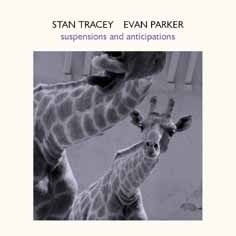
Out of Stock
Quantity in Basket: None
Log In to use our Wish List
Shipping Weight: 5.00 units
Sample The Album:
Evan Parker-saxophones
Stan Tracey-piano
Click an artist name above to see in-stock items for that artist.
UPC: 5030243040223
Label: psi
Catalog ID: 04.02
Squidco Product Code: 2826
Format: CD
Condition: New
Released: 2004
Country: Great Britain
Packaging: Jewel Tray
Recorded at Gateway Studios, In London, England, September 28th, 2003, by Steve Lowe.
Artist Biographies
• Show Bio for Evan Parker "Evan Parker was born in Bristol in 1944 and began to play the saxophone at the age of 14. Initially he played alto and was an admirer of Paul Desmond; by 1960 he had switched to tenor and soprano, following the example of John Coltrane, a major influence who, he would later say, determined "my choice of everything". In 1962 he went to Birmingham University to study botany but a trip to New York, where he heard the Cecil Taylor trio (with Jimmy Lyons and Sunny Murray), prompted a change of mind. What he heard was "music of a strength and intensity to mark me for life ... l came back with my academic ambitions in tatters and a desperate dream of a life playing that kind of music - 'free jazz' they called it then." Parker stayed in Birmingham for a time, often playing with pianist Howard Riley. In 1966 he moved to London, became a frequent visitor to the Little Theatre Club, centre of the city's emerging free jazz scene, and was soon invited by drummer John Stevens to join the innovative Spontaneous Music Ensemble which was experimenting with new kinds of group improvisation. Parker's first issued recording was SME's 1968 Karyobin, with a line-up of Parker, Stevens, Derek Bailey, Dave Holland and Kenny Wheeler. Parker remained in SME through various fluctuating line-ups - at one point it comprised a duo of Stevens and himself - but the late 1960s also saw him involved in a number of other fruitful associations. He began a long-standing partnership with guitarist Bailey, with whom he formed the Music Improvisation Company and, in 1970, co-founded Incus Records. (Tony Oxley, in whose sextet Parker was then playing, was a third co-founder; Parker left Incus in the mid-1980s.) Another important connection was with the bassist Peter Kowald who introduced Parker to the German free jazz scene. This led to him playing on Peter Brötzmann's 1968 Machine Gun, Manfred Schoof's 1969 European Echoes and, in 1970, joining pianist Alex von Schlippenbach and percussionist Paul Lovens in the former's trio, of which he is still a member: their recordings include Pakistani Pomade, Three Nails Left, Detto Fra Di Noi, Elf Bagatellen and Physics. Parker pursued other European links, too, playing in the Pierre Favre Quartet (with Kowald and Swiss pianist Irene Schweizer) and in the Dutch Instant Composers Pool of Misha Mengelberg and Han Bennink. The different approaches to free jazz he encountered proved both a challenging and a rewarding experience. He later recalled that the German musicians favoured a "robust, energy-based thing, not to do with delicacy or detailed listening but to do with a kind of spirit-raising, a shamanistic intensity. And l had to find a way of surviving in the heat of that atmosphere ... But after a while those contexts became more interchangeable and more people were involved in the interactions, so all kinds of hybrid musics came out, all kinds of combinations of styles." A vital catalyst for these interactions were the large ensembles in which Parker participated in the 1970s: Schlippenbach's Globe Unity Orchestra, Chris McGregor's Brotherhood of Breath, Barry Guy's London Jazz Composers Orchestra (LJCO) and occasional big bands led by Kenny Wheeler. In the late 70s Parker also worked for a time in Wheeler's small group, recording Around Six and, in 1980, he formed his own trio with Guy and LJCO percussionist Paul Lytton (with whom he had already been working in a duo for nearly a decade). This group, together with the Schlippenbach trio, remains one of Parker's top musical priorities: their recordings include Tracks, Atlanta, Imaginary Values, Breaths and Heartbeats, The Redwood Sessions and At the Vortex. In 1980, Parker directed an Improvisers Symposium in Pisa and, in 1981, he organised a special project at London's Actual Festival. By the end of the 1980s he had played in most European countries and had made various tours to the USA, Canada, Australia, New Zealand and Japan. ln 1990, following the death of Chris McGregor, he was instrumental in organising various tributes to the pianist and his fellow Blue Notes; these included two discs by the Dedication Orchestra, Spirits Rejoice and lxesa. Though he has worked extensively in both large and small ensembles, Parker is perhaps best known for his solo soprano saxophone music, a singular body of work that in recent years has centred around his continuing exploration of techniques such as circular breathing, split tonguing, overblowing, multiphonics and cross-pattern fingering. These are technical devices, yet Parker's use of them is, he says, less analytical than intuitive; he has likened performing his solo work to entering a kind of trance-state. The resulting music is certainly hypnotic, an uninterrupted flow of snaky, densely-textured sound that Parker has described as "the illusion of polyphony". Many listeners have indeed found it hard to credit that one man can create such intricate, complex music in real time. Parker's first solo recordings, made in 1974, were reissued on the Saxophone Solos CD in 1995; more recent examples are Conic Sections and Process and Reality, on the latter of which he does, for the first time, experiment with multi-tracking. Heard alone on stage, few would disagree with writer Steve Lake that "There is, still, nothing else in music - jazz or otherwise - that remotely resembles an Evan Parker solo concert." While free improvisation has been Parker's main area of activity over the last three decades, he has also found time for other musical pursuits: he has played in 'popular' contexts with Annette Peacock, Scott Walker and the Charlie Watts big band; he has performed notated pieces by Gavin Bryars, Michael Nyman and Frederic Rzewski; he has written knowledgeably about various ethnic musics in Resonance magazine. A relatively new field of interest for Parker is improvising with live electronics, a dialogue he first documented on the 1990 Hall of Mirrors CD with Walter Prati. Later experiments with electronics in the context of larger ensembles have included the Synergetics - Phonomanie III project at Ullrichsberg in 1993 and concerts by the new EP2 (Evan Parker Electronic Project) in Berlin, Nancy and at the 1995 Stockholm Electronic Music Festival where Parker's regular trio improvised with real-time electronics processed by Prati, Marco Vecchi and Phillip Wachsmann. "Each of the acoustic instrumentalists has an electronic 'shadow' who tracks him and feeds a modified version of his output back to the real-time flow of the music." The late 80s and 90s brought Parker the chance to play with some of his early heroes. He worked with Cecil Taylor in small and large groups, played with Coltrane percussionist Rashied Ali, recorded with Paul Bley: he also played a solo set as support to Ornette Coleman when Skies of America received its UK premiere in 1988. The same period found Parker renewing his acquaintance with American colleagues such as Anthony Braxton, Steve Lacy and George Lewis, with all of whom he had played in the 1970s (often in the context of London's Company festivals). His 1993 duo concert with Braxton moved John Fordham in The Guardian to raptures over "saxophone improvisation of an intensity, virtuosity, drama and balance to tax the memory for comparison". Parker's 50th birthday in 1994 brought celebratory concerts in several cities, including London, New York and Chicago. The London performance, featuring the Parker and Schlippenbach trios, was issued on a highly-acclaimed two-CD set, while participants at the American concerts included various old friends as well as more recent collaborators in Borah Bergman and Joe Lovano. The NYC radio station WKCR marked the occasion by playing five days of Parker recordings. 1994 also saw the publication of the Evan Parker Discography, compiled by ltalian writer Francesco Martinelli, plus chapters on Parker in books on contemporary musics by John Corbett and Graham Lock. Parker's future plans involve exploring further possibilities in electronics and the development of his solo music. They also depend to a large degree on continuity of the trios, of the large ensembles, of his more occasional yet still long-standing associations with that pool of musicians to whose work he remains attracted. This attraction, he explained to Coda's Laurence Svirchev, is attributable to "the personal quality of an individual voice". The players to whom he is drawn "have a language which is coherent, that is, you know who the participants are. At the same time, their language is flexible enough that they can make sense of playing with each other ... l like people who can do that, who have an intensity of purpose." " ^ Hide Bio for Evan Parker • Show Bio for Stan Tracey "Stanley William Tracey CBE (30 December 1926 - 6 December 2013) was a British jazz pianist and composer, whose most important influences were Duke Ellington and Thelonious Monk. Tracey's best known recording is the 1965 album Jazz Suite Inspired by Dylan Thomas's "Under Milk Wood", which is based on the BBC radio drama Under Milk Wood, by Dylan Thomas. The Second World War meant that Tracey had a disrupted formal education, and he became a professional musician at the age of sixteen as a member of an ENSA touring group playing the accordion, his first instrument. He joined Ralph Reader's Gang Shows at the age of nineteen, while in the RAF and formed a brief acquaintance with the comedian Tony Hancock. Later, in the early 1950s, he worked in groups on the transatlantic liners Queen Mary and Caronia and toured the UK in 1951 with Cab Calloway. By the mid-1950s, he had also taken up the vibraphone, but later ceased playing it. At this time he worked widely with leading British modernists, including drummer Tony Crombie, clarinettist Vic Ash, the saxophonist-arranger Kenny Graham and trumpeter Dizzy Reece. In February 1957, he toured the United States with Ronnie Scott's group, and became the pianist with Ted Heath's Orchestra in September for two years (1958-59), including a US tour with singer Carmen McRae. Although Tracey disliked Heath's music, he gained a regular income and was well featured as a soloist on both piano and vibes, and contributed compositions and arrangements that stayed in the Heath book for many years. The following year he recorded his first album as leader, Showcase, for English Decca (also Heath's label) and Little Klunk in 1959; he had first recorded in 1952 with the trumpeter Kenny Baker. At Decca Records, Tracey met his future wife, Jackie Buckland (3 April 1929 - 13 August 2009 ); the couple had two children Clark and Sarah. From March 1960 until about 1967 (some sources give 1968), Tracey was the house pianist at Ronnie Scott's Jazz Club in Soho, London, and he had the opportunity to accompany many of the leading musicians from the US who visited the club. Recordings of some of these performances appeared on LP and others have appeared in recent years on the Jazz House and Harkit labels, recorded by the journalist Les Tomkins, but with non-professional sound quality. In this context he gained some high-profile admirers; Sonny Rollins asserted at one concert: "Does anyone here know how good he is?". It is Tracey on piano that film viewers hear behind Rollins on the soundtrack of the Michael Caine version of Alfie (1966). However, the experience of working in Scott's club affected Tracey's health; the long hours led to him taking various illicit stimulants, and the low wages also meant that he had to take the workman's bus back home to Streatham at 3am. At the same time he became active in Michael Horovitz's New Departures project, mixing poetry performances with jazz, where the musicians interacted spontaneously with the words. The New Departures group recorded an album in 1964; not only is it the first of Tracey's classic albums,[citation needed] but his first recording with saxophonist Bobby Wellins, a partnership that continued for several decades. Both men contributed original compositions to the album. Wellins' "Culloden Moor" - its composition predates the contemporary Peter Watkins film on the Battle of Culloden - is particularly memorable.[citation needed] Tracey's 1965 album (its full title is Jazz Suite Inspired by Dylan Thomas's "Under Milk Wood") is one of the most celebrated jazz recordings made in the United Kingdom. Tracey was inspired to compose the suite by hearing the original 1953 BBC broadcast on an LP his wife Jackie had acquired. The track "Starless and Bible Black", a quote from the opening monologue, is probably the best demonstration of Wellins' lyricism and the highlight of Tracey's whole career. Such is the affection with which these pieces are held that Tracey has re-recorded them on several occasions, something that is unusual for British jazz musicians to do. Under Milk Wood was followed by Alice in Jazzland, an album for big band, the next year featuring many of his former Ted Heath colleagues. Later in the decade, Tracey made the arrangements for an Acker Bilk record, Blue Acker, and his first album dedicated to Duke Ellington compositions (both recorded in 1968), in this case to commemorate Ellington's 70th birthday the following year. The early 1970s were a bleak time for Tracey. Around 1970, he almost chose to retrain as a postman under pressure from the Unemployment Benefits' office - "I would have quite a good pension by now" he quips - but his wife, formerly involved in public relations, took a more direct role in the development of Tracey's career. He began to work with musicians of a later generation, who worked in a free or avant-garde style, including Mike Osborne, Keith Tippett and John Surman. Tracey continued to work in this idiom with Evan Parker at the UK's Appleby Jazz Festival for several years, but this was always more of a sideline for Tracey, who said that he "took more out of free music into the mainstream than I did from mainstream into free". Neil Ferber founder and organiser of the Appleby Jazz Festival built the festival around Stan Tracey and the musicians who worked with him, booking Stan to appear at every festival for the 18 years that it existed. In the mid-1970s he formed his own record label, Steam, and through it reissued Under Milk Wood (the major label that held the rights to it had allowed it to fall out of print). Over the next decade he also used the outlet to issue recordings of a number of commissioned suites. These included The Salisbury Suite (1978), The Crompton Suite (1981) and The Poets Suite (1984). He led his own octet from 1976 to 1985 and formed a sextet in 1979 (later called Hexad), touring widely in the Middle East and India. In this context he had a longstanding performance partnership from 1978 with saxophonist (and physician) Art Themen, and his own son, the percussionist Clark Tracey. He was able to share the billing with arranger Gil Evans in a 1978 concert at the Royal Festival Hall, such was Tracey's pre-eminence in the UK. In private, he played Ellington recordings for Evans that the latter had not previously heard. Tracey continued to record with American musicians on occasion as well, with dates taking place with Sal Nistico in 1985 and Monk associate, Charlie Rouse in 1987. The Steam label ceased trading in the early 1990s, reportedly because of difficulties caused by the retail trade's need for its inventory to carry a barcode. However, in 1992 Tracey benefited from Blue Note's brief interest in UK musicians, leading to the Portraits Plus album and the commercial issue of the BBC's recording of the concert commemorating the 50th anniversary of Tracey's first professional gig, as well as Under Milk Wood′s debut on CD. In 1995 his new quartet featuring Gerard Presencer recorded the For Heaven's Sake album and also performed gigs together. In 2003 Tracey was the subject of a BBC Television documentary Godfather of British Jazz, a rare accolade nowadays for any jazz musician, let alone one from Britain. Tracey's catalogue from the LP era is being reissued on ReSteamed Records. Already an Officer of the Order of the British Empire (OBE), he was appointed Commander of the Order of the British Empire (CBE) in the 2008 New Year Honours. Tracey died of cancer on 6 December 2013; he was survived by his son, Clark Tracey; his daughter died in 2012." ^ Hide Bio for Stan Tracey
11/18/2024
Have a better biography or biography source? Please Contact Us so that we can update this biography.
11/18/2024
Have a better biography or biography source? Please Contact Us so that we can update this biography.
Track Listing:
1. A Nice Slice 6:08
2. Nicely Placed 5:42
3. Step 4:54
4. Knuckle Suffle 3:57
5. Terms And Conditions Apply 5:05
6. New Fork (For Newk) 3:35
7. Suspensions And Anticipations 8:06
8. Special Purpose 4:29
9. Skevington's Daughter 7:02
10. Kite 8:25
11. Maggot 4:39
Parker, Evan
Jazz
London & UK Improv & Related Scenes
Recordings by or featuring Reed & Wind Players
Duo Recordings
Before April-2006
Improvised Music
European Improvisation and Experimental Forms
EMANEM & psi
Parker, Evan
Jazz
London & UK Improv & Related Scenes
Recordings by or featuring Reed & Wind Players
Duo Recordings
Before April-2006
Search for other titles on the label:
psi.



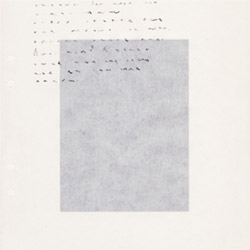

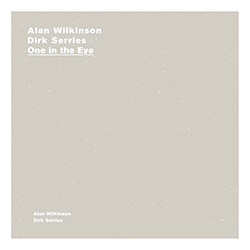
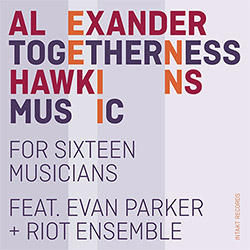

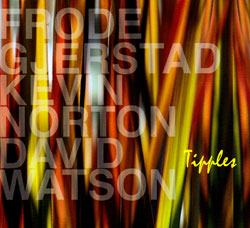
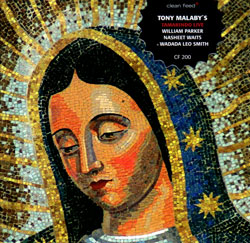
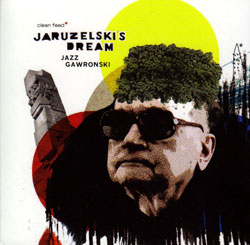
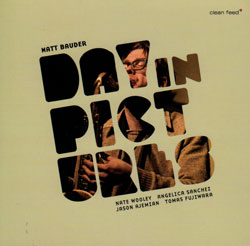
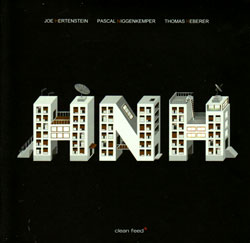
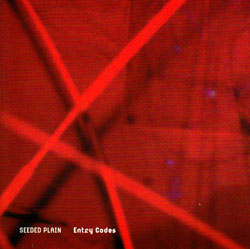
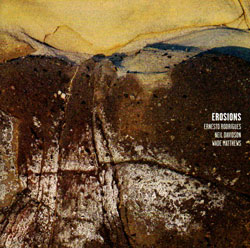
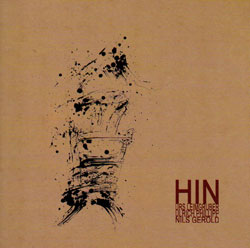
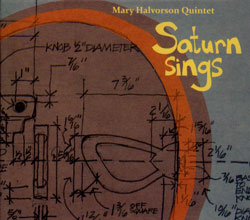
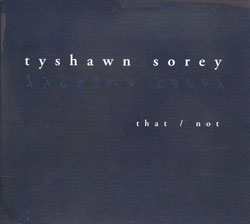
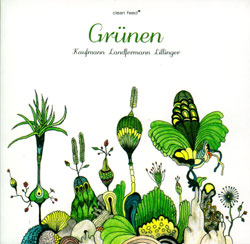
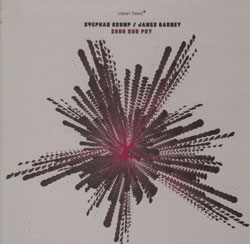
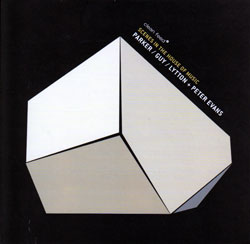
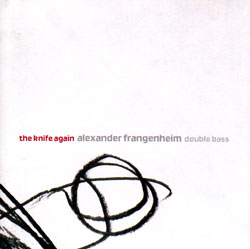
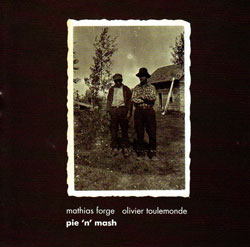
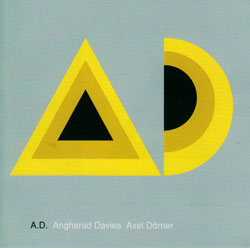
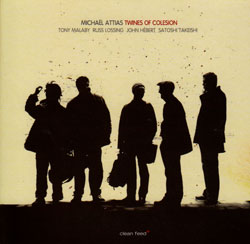
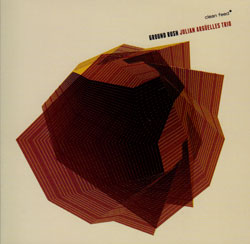
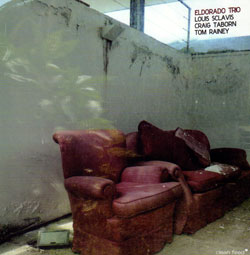
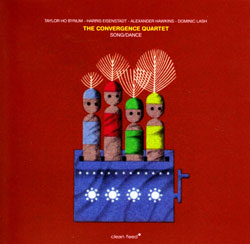














![Barker / Parker / Irabagon: Bakunawa [VINYL]](https://www.teuthida.com/productImages/misc4/35533.jpg)
![Blaser, Samuel / Marc Ducret / Peter Bruun: Dark Was The Night, Cold Was The Ground [VINYL 10-inch]](https://www.teuthida.com/productImages/misc4/35492.jpg)










![Warren, Kenny (Warren / Hoffman / Ellman): Sweet World [VINYL]](https://www.teuthida.com/productImages/misc4/35451.jpg)


![Blake, Ran / Dave Knife Fabris: Live Amsterdam 2006, First Visit [CD + POSTCARDS]](https://www.teuthida.com/productImages/misc4/35275.jpg)
![Sanna, Claudio: Compositori Sardi Contemporanei II [2 CDs]](https://www.teuthida.com/productImages/misc4/35317.jpg)












![Nevai, Nandor: <<The PRICE of FRONTIER>> Book 1: FULK [BOOK + 4 CDs]](https://www.teuthida.com/productImages/misc4/35464.jpg)
![Nevai, Nandor: <<The PRICE of FRONTIER>> Book 2: MARTIAL [BOOK + 4 CDs]](https://www.teuthida.com/productImages/misc4/35465.jpg)
![Nevai, Nandor: <<The PRICE of FRONTIER>> Book 3: JASSOM [BOOK + 4 CDs]](https://www.teuthida.com/productImages/misc4/35466.jpg)
![Nevai, Nandor: <<The PRICE of FRONTIER>> Book 4: HARD-WON [BOOK + 4 CDs]](https://www.teuthida.com/productImages/misc4/35467.jpg)






![DNS: Taking Big Bites Of The Khandas Three Cafes Deep [2 CDs]](https://www.teuthida.com/productImages/misc4/35334.jpg)




![Cleaver, Gerald: The Process [VINYL]](https://www.teuthida.com/productImages/misc4/34966.jpg)




![Alva Noto: HYbr:ID II [VINYL 2 LPs]](https://www.teuthida.com/productImages/misc4/35201.jpg)

![Baron, Derek / Luke Martin: Distinct and Concealed [CASSETTE + DOWNLOAD]](https://www.teuthida.com/productImages/misc4/35079.jpg)

![Lyle, Erica Dawn : Colonial Motels [CASSETTE + DOWNLOAD]](https://www.teuthida.com/productImages/misc4/35080.jpg)







![Alva Noto: HYbr:ID III [VINYL 2 LPs]](https://www.teuthida.com/productImages/misc4/35011.jpg)
![Kubisch, Christina / Trondheim Voices: Stromsanger 2022 For Six Voices And Electromagnetic Waves [VINYL]](https://www.teuthida.com/productImages/misc4/34628.jpg)








![Zurria, Manuel: Fame di Vento [3 CDs]](https://www.teuthida.com/productImages/misc4/35167.jpg)

![Granberg, Magnus / Nattens Inbrott / Skogen: Holde Traume, Kehret Wieder! [2 CDs]](https://www.teuthida.com/productImages/misc4/35038.jpg)
![Frey, Jurg: Outermost Melodie [2 CDs]](https://www.teuthida.com/productImages/misc4/35039.jpg)

![Pavone, Jessica: Reverse Bloom [VINYL]](https://www.teuthida.com/productImages/misc4/34895.jpg)




![Modney (Modney / Wooley / Gentile / Roberts / Pluta / Symthe / ...): Ascending Primes [2 CDs]](https://www.teuthida.com/productImages/misc4/34852.jpg)








![Elephant9 with Terje Rypdal: Catching Fire [VINYL 2 LPs]](https://www.teuthida.com/productImages/misc4/35355.jpg)
![Deerlady (Obomsawin, Mali / Magdalena Abrego): Greatest Hits [VINYL]](https://www.teuthida.com/productImages/misc4/34876.jpg)




![Haino, Keiji: Black Blues [2 CDs]](https://www.teuthida.com/productImages/misc4/35109.jpg)



![Surplus 1980: Illusion of Consistency [CD]](https://www.teuthida.com/productImages/misc4/35069.jpg)
![Staiano, Moe: Away Towards the Light [VINYL + DOWNLOAD]](https://www.teuthida.com/productImages/misc4/35037.jpg)




![Caveira (Gomes / Sousa / Abras / Ferrandini): Ficar Vivo [VINYL]](https://www.teuthida.com/productImages/misc4/34643.jpg)
![Gregg, J. J. / David Van Auken: Lunar Prairie [CD w/ DOWNLOAD]](https://www.teuthida.com/productImages/misc4/34611.jpg)

![Coultrain: Mundus [VINYL]](https://www.teuthida.com/productImages/misc4/32439.jpg)
![Mattin: Songbook #6 [VINYL]](https://www.teuthida.com/productImages/misc4/27317.jpg)
![Punkappella: Wake Up [7-inch VINYL]](https://www.teuthida.com/productImages/misc4/17519.jpg)
![Residents, The: WARNING: UNiNC.: Live And Experimental Recordings 1971-1972 [VINYL 2 LPs]](https://www.teuthida.com/productImages/misc4/31521.jpg)
![Coultrain: Phantasmagoria [VINYL]](https://www.teuthida.com/productImages/misc4/30142.jpg)
![Lennon, Sean Ono: Asterisms [VINYL]](https://www.teuthida.com/productImages/misc4/34517.jpg)

![Rotem Geffen: The Night Is The Night [VINYL]](https://www.teuthida.com/productImages/misc4/34631.jpg)
![Coley, Byron: Dating Tips for Touring Bands [VINYL]](https://www.teuthida.com/productImages/misc4/17906.jpg)

![Lost Kisses: My Life is Sad & Funny [DVD]](https://www.teuthida.com/productImages/misc4/lostKissesDVD.jpg)